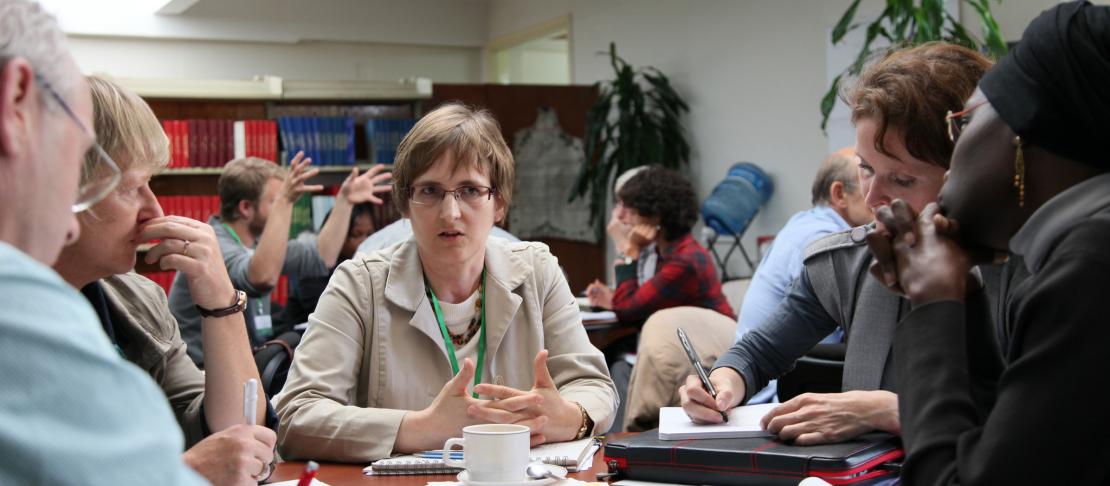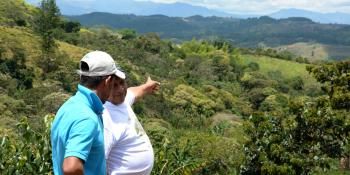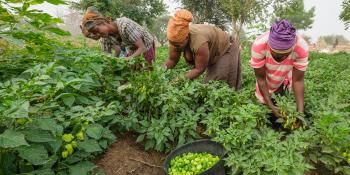Transformative solutions across scales: what can social learning contribute?

Researchers and practitioners shared lessons on how transformative actions and social learning can help tackle climate impacts at Our Common Future Conference in July.
Strategies for shared learning are increasingly being used to encourage and facilitate more intensive collaboration between scientists, policy-makers and local community members.
This is a positive shift as the approach opens up possibilities for co-creating knowledge and achieving transformative solutions to complex problems like climate change across various levels of society.
However, this less linear and more deliberative approach to development-, policy and other processes does present a number of challenges, as social learning can be an expensive and lengthy process that takes participants out of their usual ways of working.
To explore these issues in greater depth, a small group of social learning researchers and practitioners presented recent work in a discussion titled Transformative solutions across scales: social learning, science, policy and dialogues at the Our Common Future Under Climate Change conference in Paris earlier this year in July.
The below post is a quick Q&A piece with contributions from the panellists on on the potential of social learning as a tool for transformation across scales.
What are the new lessons learned on social learning?
The panelists have explored how social learning could become a necessary and strong dynamic tool for transformation to a low-carbon and resilient society, and which social learning-type approaches could help lead the way.
During the session speakers highlighted a number of recent, real life social learning cases, including the development of a State Climate Action plan in North Rhine-Westphalia, Germany. This example successfully led to the establishment of a broad societal transformation dialogue and implementation of follow-up actions.
In South Africa, social learning is being used to engage people from very different backgrounds in a process of joint river-basin management. This means tackling differences in power and worldviews head-on through these learning processes.
There is now a growing body of evidence of the important role that multi-stakeholder processes, particularly those aimed at collective learning and decision-making, can contribute to transformation at a range of scales. These processes, such as social learning, can engage a wide range of actors, from communities, to large corporate, governance and financing bodies with good effectiveness.
However, more work is needed to understand the conditions in which these processes can be established and sustained, including the incentives for participation and adherence to outcomes from these processes, ways of managing power differences between participating groups or actors, and the capacities needed to undertake this transformative work.
Used effectively, we argue that social learning can have multiple applications that could start the journey to collective change and transformation, moving beyond traditional linear approaches in which information is front-loaded for presumed uptake by users and the policy and practice community, with limited impact.
Conference presentation by Blane Harvey, member of CCAFS Climate Change and Social Learning Initiative and researcher at The Overseas Development Institute (ODI)
What were the major knowledge gaps and research needs identified in the session?
We are now entering the stage of worldwide “action”, in which knowledge is generated at different scales and in divergent ways. In this regard, we urgently need to strengthen the ways we promote communication across different systems and scales; and how we can secure commitments of those concerned for actual implementation in a way to advance more ambitious low carbon and resilient initiatives.
Another research gap is how to effectively use social knowledge approaches through evidence-based research so that we can begin to show the added value. Research across scales and contexts may address this gap.
Another gap is how to ensure that the time that is required in 'building the trust' that is required is enabled and not short cut because of the need for 'quick', incremental adaptive change and transformation.
What are the take-home messages from the session?
We currently find ourselves at a turning point. While there is evidence of how these social learning-type practices are working, more effort is needed to share these examples and the impacts they yield and to encourage a more widespread adoption – moving beyond multiple pilot examples to scaling up and out. The session raised a number of important points for social learning, such as:
- Social learning should be viewed as a social capital building exercise, which requires time and reflection in order to obtain sustainable outcomes.
- While it is important to have democratic principles in place, this is a question of scale. Democracy is an enabling factor for social learning processes, but this can be initiated at a small scale even if the macro context is not one of democracy.
- Science-policy dialogues increase the capacity of stakeholders to be heard by powerful rulers.
- Bottom-up social learning can start by focusing on things that communities have agency over.
- Social learning approaches enable and encourage scientists to get off the podium, which is necessary.
Learn more about social learning and CCAFS Climate Change and Social Learning (CCSL) initiative.
Related reading: Social learning and climate change adaptation: evidence for international development practice. Article by Jonathan Ensorand Blane Harvey.
Piece by Blane Harvey, Overseas Development Intitute (ODI), Sharon Pollard, AWARD South Africa, Penny Urquhart, Independent Analyst and Coleen Vogel, Wits University. Blog includes views from the full set of discussants from the conference session and draws on the official session reporting for the Conference.
Interested in policies and institutions for climate-resilient food systems? Subscribe to our newsletter.



